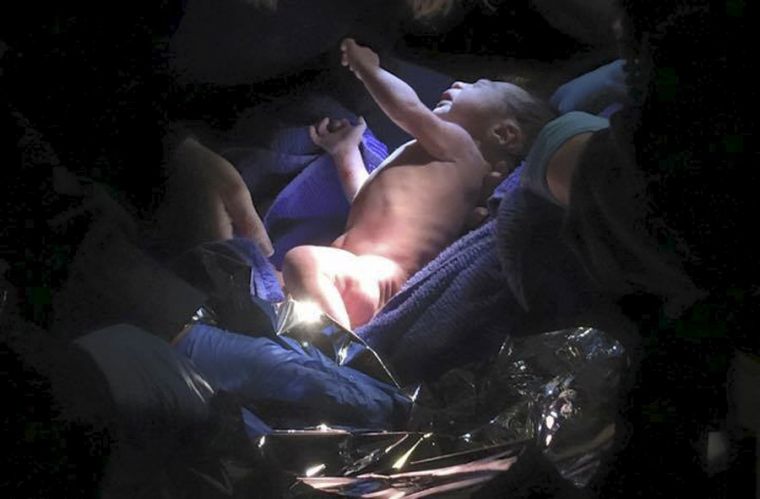Jews, Christians and Muslims rally to defend religious circumcision as calls for ban intensify
Calls for a ban on religious circumcision are growing as Iceland considers a bill prohibiting the practice for non-medical reasons.
The British Medical Association is coming under pressure to take a stance as it is conducting a regular review of its guidelines on 'ritual' circumcision. Both Muslim and Jewish groups practise circumcision and warn that any restriction would amount to an infringement of religious freedom.

Currently the BMA outlines best practice for circumcision but does not take a stance on the ethics. The General Medical Council says doctors do not have to carry out the procedure if they believe it is not in the child's best interests but says 'cultural, religious or other beliefs' must be considered.
Under Jewish tradition a male baby is circumcised eight days after being born and under Islamic teaching men should be circumcised before puberty.
But a YouGov poll last week found 62 per cent of Brits would back a ban on circumcision before adulthood and just 13 per cent would oppose it.
Jonathan Arkush, president of the Board of Deputies of British Jews, said children had 'a right to be brought up in their family's religious or cultural background' and warned that a ban on circumcision until the age of 18, or the NHS's age of consent, 16 — as campaigners are calling for — would mean that the procedure would be more painful.
Stephen Fouch, a spokesman for the Christian Medical Fellowship, defended the Jewish and Islamic perspective and said that while the concerns around consent were valid, a ban would be 'profoundly damaging and profoundly illiberal'.
'It would be extremely discriminatory,' he told Christian Today. 'It would be imposing a set of values on to prominent religious minorities in the UK that they are never going to be happy to accept.'
He added: 'It is effectively saying you cannot practise your faith in this country, particularly for Judaism where it is an important part of the faith. It is going to criminalise a large part of the population and effectively marginalise these two religious communities.'
'There is a big difference between that and FGM which is not required by any religious teaching around the world,' he said.
But Richard Duncker, of the Men Do Complain group, said the practice was 'without doubt' a breach of a child's rights and warned his group would protest outside the BMA conference in Brighton in June. 'There is no disease being cured, so it is a complete breach of medical ethics,' he said according to the Times.
Rev Bruce Thompson, Chair of Methodist Friends of Judaism, warned any ban would be seen as an attack on central religious beliefs.
'I think it is very difficult for those outside communities that uphold male infant circumcision on religious grounds to understand the practice,' he told Christian Today. 'The tradition is deeply embedded within their faith, it is a key component to their identity. If secular authorities were to place a ban on such a sacred ritual it would be seen by those within that faith community as a direct attack on their core beliefs. My view is that a healthy society should value diversity of belief and tradition and not drive a wedge between the communities.'
Chief Rabbi Pinchas Goldschmidt, president of the Conference of European Rabbis, said he was organising a 'political campaign' to warn of the dangers of such a ban. 'Over the past 3,500 years it has been an essential part of Jewish identity so every lawmaker looking to sign such proposals should know they are saying, "[We] don't want an organised Jewish community in our country."'
Qari Asim, a senior imam in Leeds, added according to the Times: 'It's unfortunate that these campaigns resurface, because we've gone over this so many times and it goes against one of our fundamental principles, which is religious freedom.'











